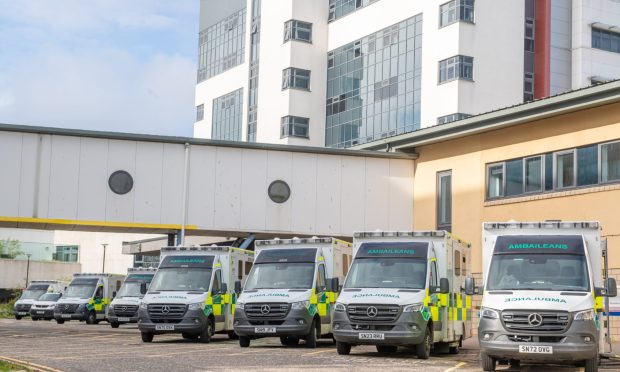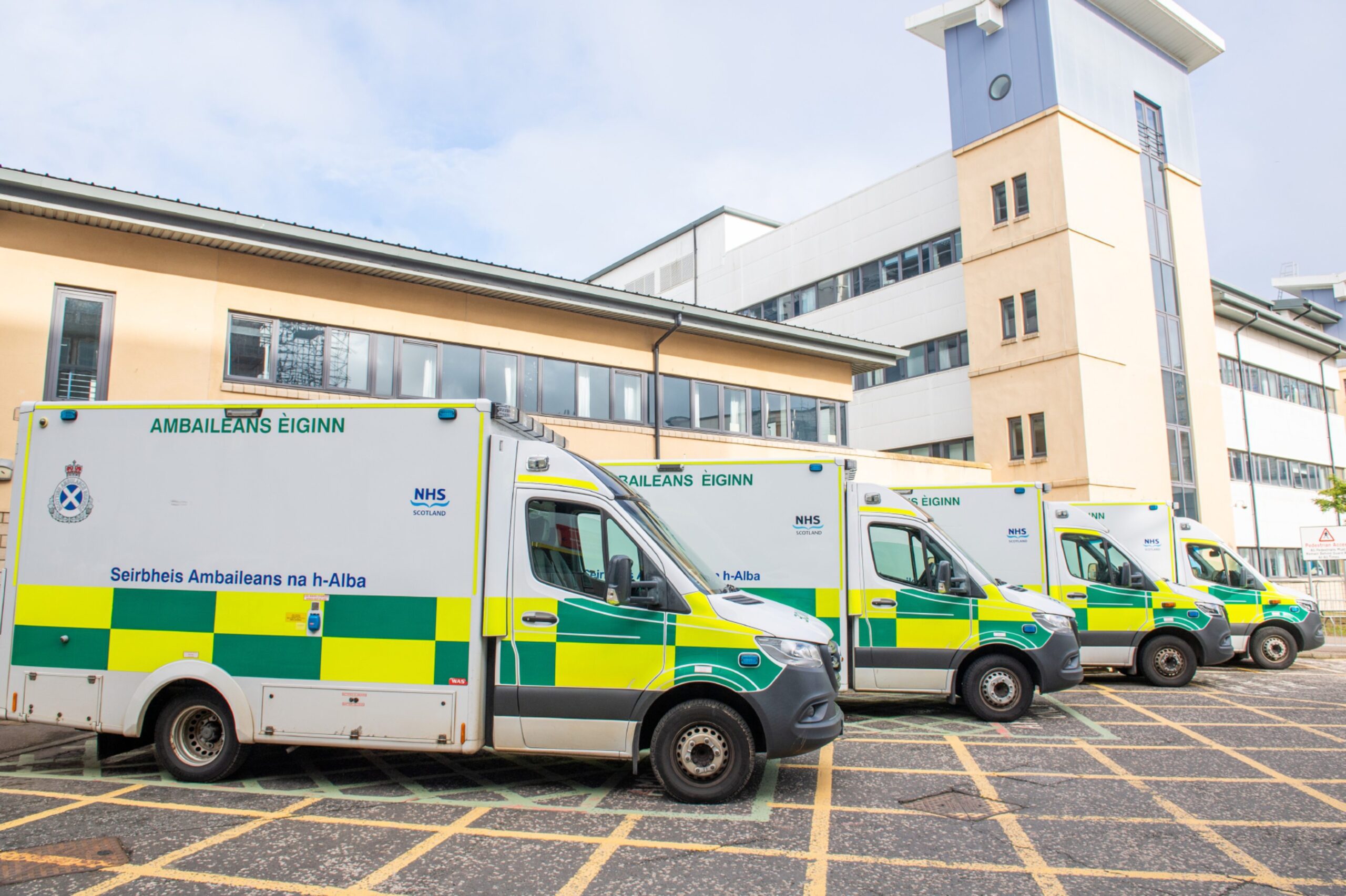Ambulances have been stacked for up to four hours outside Aberdeen Royal Infirmary’s (ARI) accident and emergency department.
At one stage today, as many as a dozen ambulances were queued at the hospital, waiting up to 4 hours or more to hand over patients.
It is understood this left areas within Grampian without vital emergency cover.
Eight ambulances were queued up outside ARI earlier this evening.
NHS Grampian said they have been experiencing “periods of exceptionally high demand”.
The health board has also apologised to anyone who has been affected by the delays.
Recurring problem at ARI
It is not the first time that ambulances have been stacked outside NHS Grampian’s flagship hospital this year, as it also happened in February and March.
When it happened at the end of February, then First Minister Humza Yousaf said that the waits were “simply not acceptable” and cannot be justified.
Last week, The P&J revealed that no ambulances were available to send to attend to the incident that saw one-year-old Ivy Mae Ross die at a church in Balmedie.
The Scottish Ambulance Service’s (SAS) Special Operations Response Team (Sort) crews were sent to the village’s Plymouth Brethren Church due to five-hour queues at ARI.
This incident led to First Minister John Swinney pledging to raise this situation with NHS Grampian.
‘Ambulances having to wait at the front door is not what we aim for’
Responding to day’s backlog, a spokesperson for NHS Grampian said: “Ambulances having to wait at the front door is not what we aim for, for our patients and indeed our colleagues at SAS [Scottish Ambulance Service]. We apologise to anyone who has been impacted by this.
“The reasons are challenging. At certain, often unpredictable points, we experience periods of exceptionally high demand at the emergency department.
“Our hospitals are currently facing sustained pressure due to the volume of acutely ill patients arriving, delayed discharges and staffing pressures. This can unfortunately lead to ambulances having to wait at the front door, as we are unable to admit more patients to the department.
“During periods of intense pressure, cases are triaged as normal with those facing life-threatening situations – such as heart attacks or strokes – continuing to be admitted rapidly for life-saving treatment as an absolute priority.”

